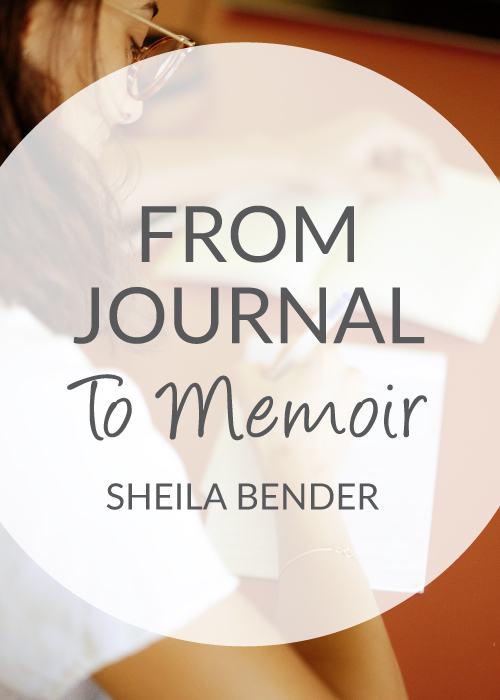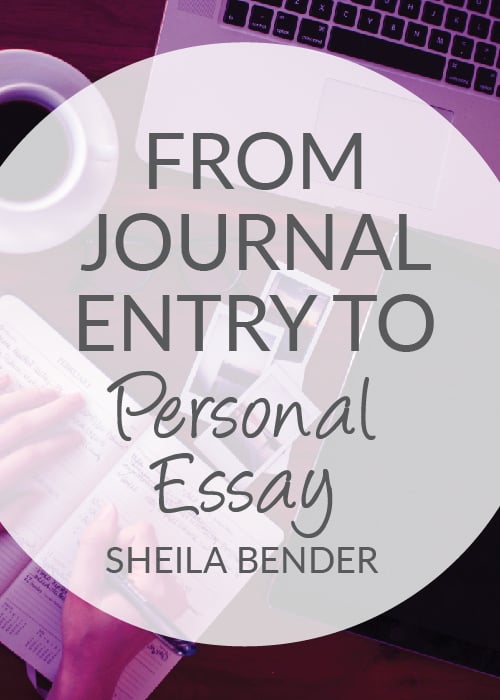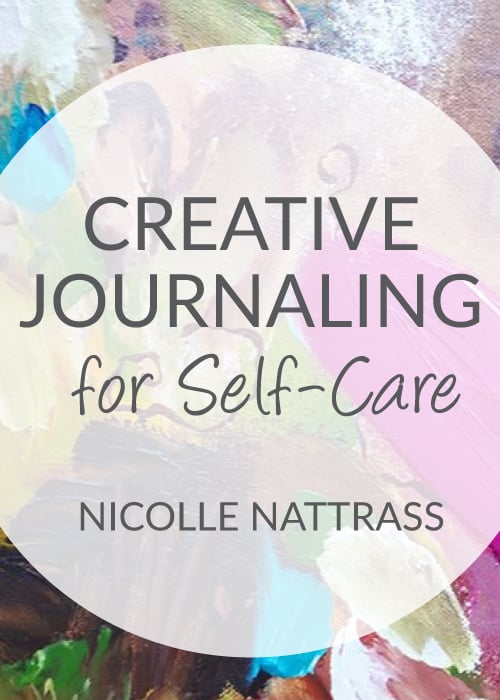To learn more about this course – watch this short video with Sheila Bender & Lynda Monk
What to expect in this live virtual 6 week workshop?
During this highly interactive and engaging online workshop, you will learn how to go from journaling to writing memoir!
What will the process be like?
Each week there will be a live class held via Zoom where you will learn how to identify memoir material in your journals and also learn how to journal (at least some of the time) with future memoir writing in mind.
Through studying and discussing the strategies of published memoirists Sheila will provide models for how to locate memoir material in your journal and shape it using sensory images, good transitions, vivid scenes, insight, and discovery, which are at the heart of successful memoir writing.
Workshopping short pieces from each participant over two classes will help you see how to succeed in making these strategies your own.
Each week, participants will be given an assignment and asked to bring a short sample of their writing for workshopping during the live call on Zoom. Sheila will be teaching various aspects of memoir writing and offering suggestions and strategies for mining your journal for stories and content. This is a course, a workshop and a coaching program all wrapped into one!
You will have the benefit of direct feedback, support and teaching from a leading writing teacher during 6 live workshop sessions. Broadly, here is the weekly overview for this interactive virtual workshop…
Outline of the Weeks’ Instructional Topics
Week One: Getting Started
How is memoir different than a journal entry—perhaps the difference is between reporting and writing toward discovery. Where can you locate that frame of mind in the published short memoir presented? How might you shape your journal entries toward discovery? The instructor will share material from her book A Year in the Life: Journaling for Self-Discovery.
Week Two: Memoir Forms
We will look at some unusual memoir forms: fragmentary writing, flash nonfiction, and lyric nonfiction. We will learn from the writing of Olivia Drescher, Ron Carlson and Brenda Miller.
Week Three: Workshop Our Writing
Sheila is dedicated to the idea that for work-in-progress there is no such thing as “bad” writing, only the opportunity for good writing. She offers response in three steps and leads the group in doing this: 1) saying back words that stick to show we heard the writing, 2) citing the feelings responders think the writing wants them to have, 3) citing the feelings that jar them from the full effect of the writing, and 4) posing questions about what they are curious about learning from the author. The responses are stated as “I” statements. The writer is thereby empowered to decide what changes seem necessary to make in the writing. And the reliance on sensory images and scenes will develop.
That is how we will respond to the work posted for our workshop this week.
Week Four: Creating Scenes & Transitions
When we journal, we know what we are talking about and don’t have the need to put as much on the page as a memoir reader might need to have readers truly experience the situation they are writing about. As writers, we have to learn to slow time down so the reader can experience what we experienced. Not only do we have to create scenes readers can enter rather than be told about, we have to make time and space transitions in prose that may no longer be time and date stamped.
We will look into a strategy from master teacher Jack Grapes that helps writers write scenes. We will also study the way images help us make time and place transitions by reading the story “Indian Casino” by David Shuman.
Week Five: Shaping Your Writing
Using rhetorical forms for shape: how-to, letterform and comparison and contrast. We will study work by Sarah Russell, Lori Moore, Margaret Atwood and contributors to David Eggers’ Open Letters to People or Entities Who Are Unlikely to Respond.
Week Six: Going Forward
We’ll discuss your posted piece and offer response that empowers you to continue developing your journal entries for memoir.
As a step toward moving forward after class, we will share ideas on setting deadlines (or having them set for you), using short spurts to write and other tips for getting started and keeping going writing. We’ll discuss sending short form work out to journals for publication and we’ll discuss how to put what you’ve learned to use in book length memoir.
Next course dates TBD in 2024.
- You will receive details on how to access Zoom the week prior to the start of the course.
- Course materials, resources and reading materials are provided weekly by the instructor.
Register now. Space is limited to 8 participants to ensure a supportive and meaningful learning experience for all.
Move closer to your memoir writing dreams.







